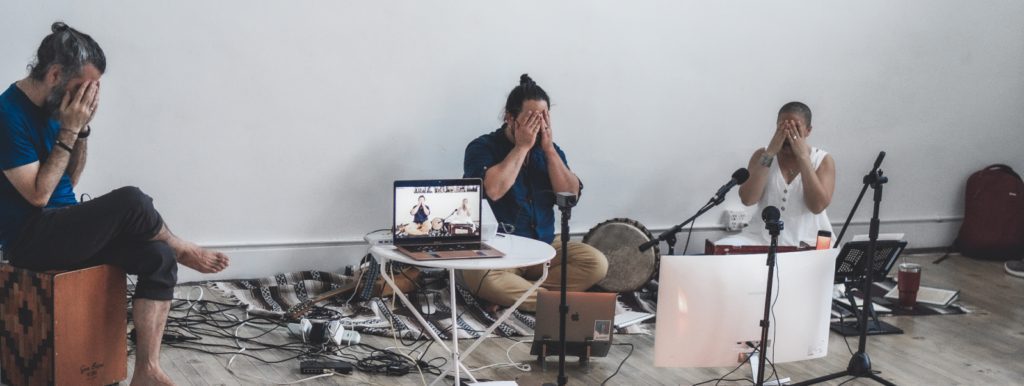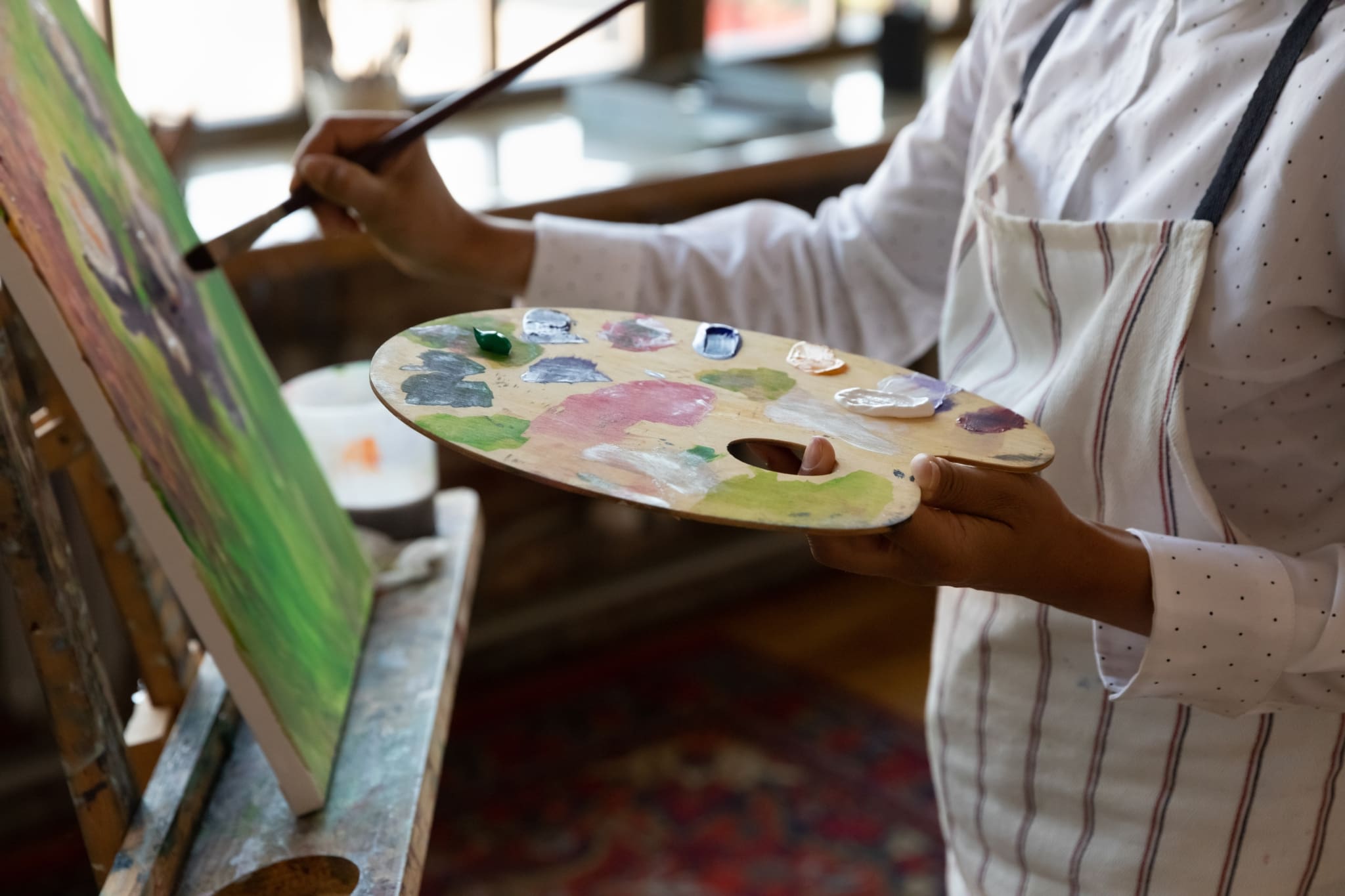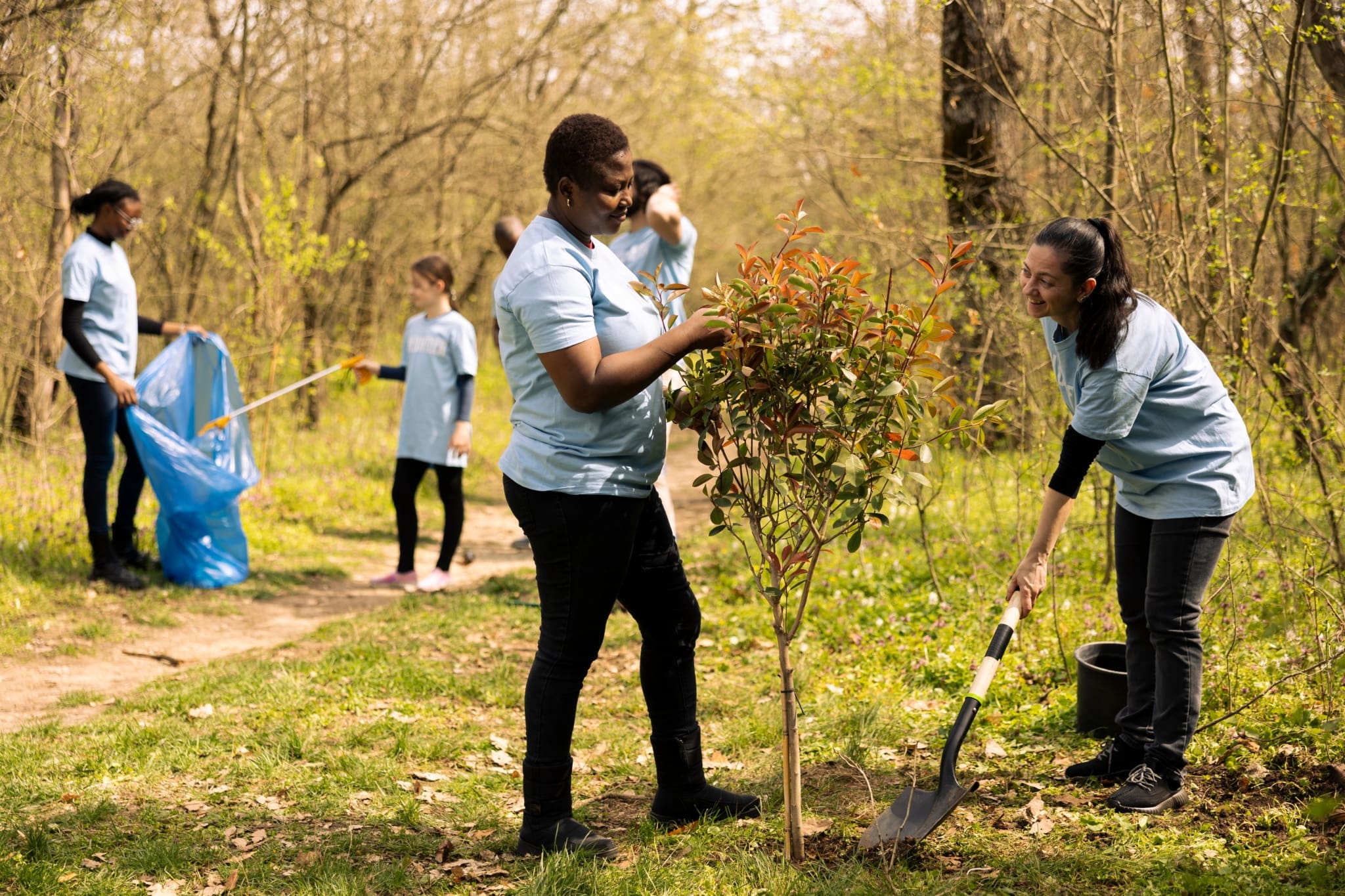The following is a guest blog post from Yoshi Silverstein, founder and executive director of Mitsui Collective. He also is a Schusterman Fellow, an initiative of the Charles and Lynn Schusterman Family Philanthropies. Schusterman Family Philanthropies is a member of Independent Sector.
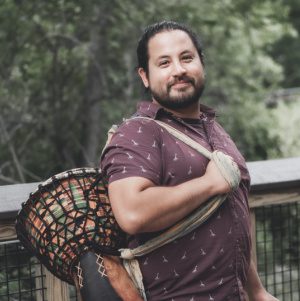
Yoshi Silverstein. Photo by Nick Brilla and courtesy of Schusterman Family Philanthropies
My Montessori preschool in Spokane, Washington was where I first felt a taste of a community and environment that set me up for growth and learning. The school was housed inside an arboretum, and recess was as much with the trees, shrubs, and flowers as with other students. Both inside and outdoors, our personal identities formed and grew in relationship to our own growing bodies, to our classroom community, and to the natural world immediately surrounding us.
I was fortunate to find similar moments of alignment throughout my childhood when playing music, skiing, hiking in the mountains, and studying martial arts. Then, through learning from incredible experiential Jewish educators, I discovered that when I applied the lens of Jewish learning and spirituality to these practices, they felt rooted in something deeper than what they had held solely on their own.
I had discovered embodied Jewish practice.
Embodied Jewish Practice
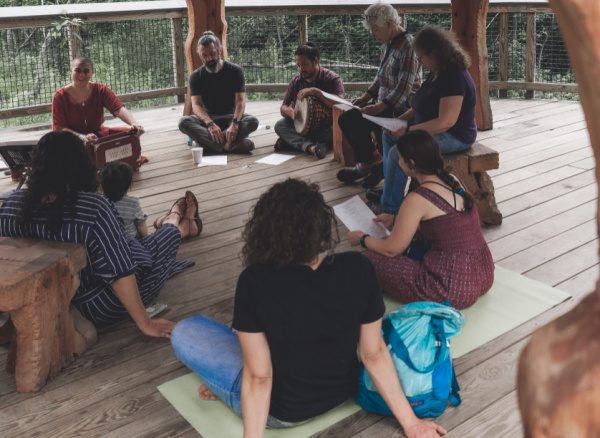
People participate in a soulful chanting session during Mitsui Collective’s 2021 Tu B’Av program. Photo by Nick Brilla and courtesy of Schusterman Family Philanthropies
Since then, Judaism has felt most alive for me when experiencing it in and through my body. Over the subsequent decades, my work began to identify and weave together the threads that would ultimately lead me to create Mitsui Collective. Launched in early 2020, Mitsui Collective builds resilient communities through embodied Jewish practice and racial equity. We bring the tools of embodied practice – movement, breathwork, music, song, prayer, nature connection, food, art and ritual – into the experience of Jewish life and learning.
While embodiment in Jewish practice is several thousand years old, embodied Jewish practice as a professional field is at an exciting and largely nascent stage. In addition to Mitsui Collective’s pedagogical research and development work, over time we hope to build a network of community spaces rooted in Jewish learning and wisdom and activated through embodied Jewish practice. Designed to optimize a number of intersecting personal and communal benefits, we anticipate these spaces including a combination of movement studios, nature playscapes, therapeutic healing gardens, food production spaces, and facilities for co-working and communal dining.
The need for spaces and practices that enable people to experience healing and wholeness in both body and soul has never been greater. Today, Jewish communities exist against a backdrop of ongoing racism and white supremacy, rising xenophobia, antisemitism, the existential impact of climate change, and a pandemic that has often necessitated a “disembodied” Jewish practice experienced primarily on screen but in isolation. Within this setting, we increasingly see the need and desire for embodied Jewish learning and practices that help to strengthen our personal and collective connection to place, community, personal identity, ancestry, and lineage for Jews of all racial backgrounds.
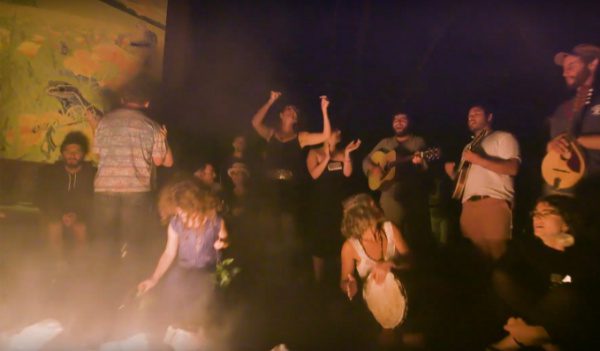
People participate in an embodied havdalah bonfire and song session at the JOFEE Network Gathering organized by Hazon in 2019. Photo by Flow Video Productions and courtesy of Schusterman Family Philanthropies
Transforming Jewish Communities
As a Jew of Color – I am Chinese through my mother and Ashkenazi/Eastern European through my father – I have felt the discrimination that is all-too-often experienced by those who hold marginalized identities. Even after a decade and a half working as a Jewish professional, it was not until I found opportunities to be in community with other Jews of Color that I rediscovered a core sense of belonging that often feels missing. These were spaces primed for both the healing and transformation that were essential catalysts for further developing and strengthening my sense of personal identity and rootedness.
In a world shaped and dominated by over five centuries of racist ideology, we all have racialized identities. This culture is dense and opaque – but it can and must be transformed into a culture thick with the ability to heal and transform. Racism impacts all of us, and addressing racism and healing from its impacts is critical to transforming equitable and thriving Jewish spaces.
As part of this work, Mitsui Collective aims to shape both individual and communal culture change through embodied Jewish practice. We are developing new programming and resources to integrate principles of embodied racial equity into both personal and professional leadership and practice.
For example, using embodied Jewish practice to strengthen personal grounding and communal connection during a spiritual or educational session could mean including:
- Song and music to create space for every participant to bring their voice.
- Pauses to breathe together with intention.
- Physical movement to encourage deeper learning and sensory experience.
- Nourishment with delicious foods, beverages, smells, sights, and sounds.
- The outdoors and enjoying nature as an effective catalyst for social and spiritual connection.
From a racial equity lens, this means considering factors such as:
- Safety: The presence of security personnel may present both a physical and psychological danger to people of color in your community. Think through options for community-based safety alternatives and training protocols for staff and community members that keep your entire community safe.
- Ability: Race and disability are inextricably linked, and embodied practice can be challenging for a disabled person who cannot physically (or virtually) access your space. Ask what accessibility needs your community members have with enough advanced notice to fill those needs as best you can.
- Comfort: Not every person feels equally comfortable in every space or with every type of activity. Offer low-barrier options (such as bracelets, stickers, common signals) for communicating needs and preferences around physical touch.
These are just a few examples of how Jewish organizations and leaders can strengthen racial equity practices in the context of embodied presence and leadership. In turn, these practices can benefit organizational practices and protocols, community building, and workplace design and culture – ultimately building resilient Jewish communities that are ready and able to thrive in an ever-changing world.
Planting Seeds for Our Future
Like growing a plant, transforming Jewish communities requires ongoing commitment – and it starts small by planting seeds. Today, I am inspired by seeing so many individuals and communities rallying to plant these seeds that hold immense potential for a deeply more equitable and inclusive future.
The approaching Jewish New Year is a Shmita year, a Sabbatical year during which the Torah instructs us to allow our lands to lay fallow and to release all debts. My hope and request is that these seeds be nourished and supported, the soil around them made fertile, and their growth welcomed into the existing ecosystems into which they sprout and help to thrive. The reward for our labor is a better and brighter future we can pass on to our children for years to come.
Yoshi Silverstein is founder and executive director of Mitsui Collective, which builds resilient community through embodied Jewish practice and multiracial justice. The top photo, made by Nick Brilla, shows a Shabbat candle lighting as part of Mitsui Collective’s 2021 Tu B’Av program. It is courtesy of Schusterman Family Philanthropies. His essay, which reflects Silverstein’s views, was first published on August 27, 2021 on the organization’s website. Learn about other Independent Sector members and becoming a member.
